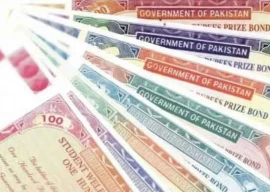
In a statement issued on Friday, LCCI President Sheikh Muhammad Arshad, Senior Vice President Almas Hyder and Vice President Nasir Saeed underlined the need for protecting the industry, which was not only the biggest source of revenue for the government but was also providing employment to millions.
They said the government should safeguard the manufacturers and strictly discourage the import of those items which were being produced at the domestic level.
They also emphasised that smuggling should be tackled with a firm hand, as it was becoming a major threat to the economic growth. “It is causing hefty losses not only to the trade and industry but also to the national exchequer,” they said.
Goods smuggled through the borders of Afghanistan, Iran, China, India and the Afghan transit trade form a big chunk of the informal economy that ranges between 50 and 60% of the formal economy.
“Markets across the country are flooded with smuggled goods and industries are struggling for survival as these goods are not only easily available everywhere but are also attracting buyers who prefer foreign merchandise,” the LCCI office-bearers said.
They asked the government to review the Afghan transit trade agreement as it has become the main source of smuggling into Pakistan. Under the cover of the transit trade agreement, imported goods for Afghanistan are smuggled back into Pakistan with the help of Afghan traders.
In order to control cross-border smuggling, they suggested that scanners should be installed at border checkpoints. “Once sale of smuggled goods is strictly prohibited, the incentive to engage in smuggling would be minimised,” they said.
Multiple check posts should also be established, which will stop the easy flow of smuggled goods such as tyres. And to minimise the risk of connivance, duties of customs collectors should be rotated after short intervals.
Published in The Express Tribune, May 14th, 2016.
Like Business on Facebook, follow @TribuneBiz on Twitter to stay informed and join in the conversation.









1732486769-0/image-(8)1732486769-0-270x192.webp)







COMMENTS (1)
Comments are moderated and generally will be posted if they are on-topic and not abusive.
For more information, please see our Comments FAQ